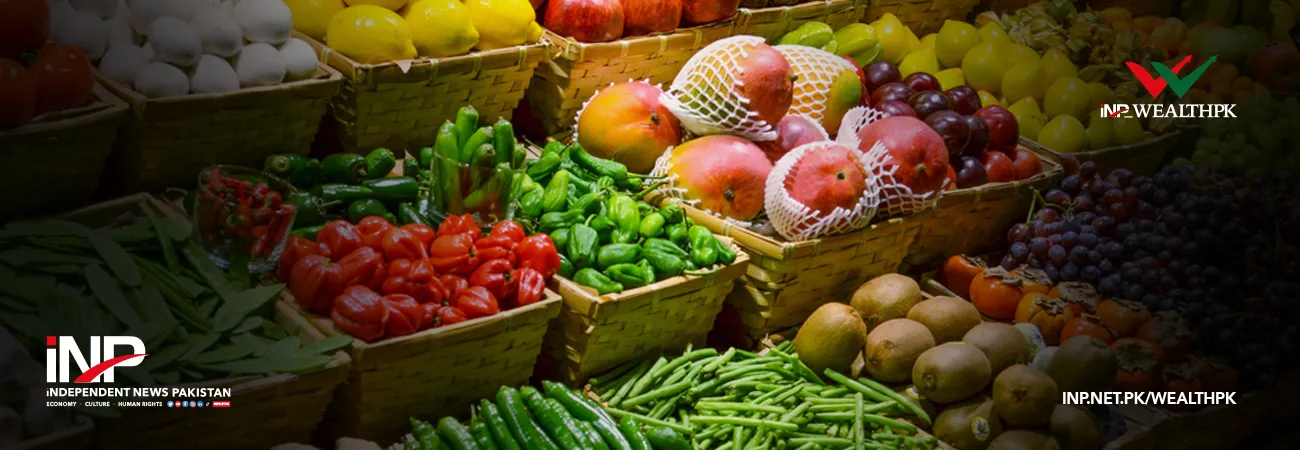INP-WealthPk
Arsalan Ali
Pakistan has great potential for exporting fruits and vegetables, but the lack of efficient logistics infrastructure and difficulties in international shipments lead to high trade costs.“These challenges reduce the competitiveness of Pakistan's fruits and vegetables in the international market,” said a report of Trade Development Authority of Pakistan (TDAP). Pakistan's poor performance in the World Bank's Logistics Performance Index (LPI) can be attributed to several factors. The country is currently ranked 122 out of 160 economies, highlighting the gravity of challenges it faces in terms of logistics facilities. The TDAP report highlighted detrimental effects of underdeveloped cold chain systems. This deficiency results in significant physical and quality losses for perishable fresh fruits and vegetables.
A robust cold chain infrastructure is essential for ensuring safe transportation of these products from farms to packing houses, processing plants, and eventually export exit points. The report stated that inefficient technology and machinery are prevalent in existing cold storage units. The absence of adequate warehouse and cold storage facilities at major border points creates a serious obstacle, causing most fresh produce to be sold in local markets and discarded quickly. In the realm of road transportation, the commonly utilised National Logistics Cell (NLC) trucks and containers for fruits and vegetables trade in Pakistan are largely insufficient. As a result, significant delays occur, posing a major obstacle to the export of perishable goods.
These delays not only impact the timely delivery of fruits and vegetables, but also hinder the overall efficiency of trade operations. Limited airfreight options and high charges pose significant challenges for shipping small volumes of fruits and vegetables from Pakistan. According to the report, the scarcity of airline companies operating in Pakistan restricts access to markets at reasonable costs. Outdated inspection methods employed by customs officials result in time-consuming manual checks of exported goods, as they lack appropriate scanning equipment. Consequently, long delays occur at ports, increasing transaction costs and undermining competitiveness. To thrive globally, several critical factors for success were highlighted in the report.
These encompass the need for robust production capabilities achieved through exemplary farming practices and enhanced collaboration among smallholder farmers. Additionally, it emphasised the significance of refining internal production processes by integrating marketing channels, establishing transparent supply systems, and optimising logistical operations throughout the entire chain. A noteworthy development in the industry is the proliferation of certifications like Good Agricultural Practices (GAP), which foster traceability and compliance by creating favourable conditions. Additionally, the report stated that tackling climate change risks entails conducting research on resilient crop varieties, particularly those capable of withstanding droughts, while also implementing clear policy directives.
A notable shift in consumer behaviour is observed towards environmentally conscious choices, including the preference for organic fresh fruits and vegetables. To support this trend, it is imperative to promote significant investments in cutting-edge post-harvest services and storage facilities. This includes the establishment of temperature-controlled storage facilities in key production regions. According to data provided by Pakistan Bureau of Statistics, the export earnings from fruits and vegetables in Pakistan reached $248.040 million and $283.757 million during the initial 11 months (July-May) of the fiscal year 2022-23.
Credit: INP-WealthPk













